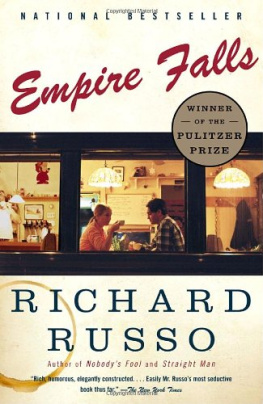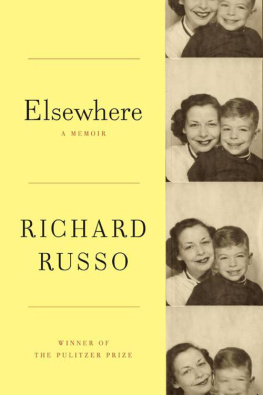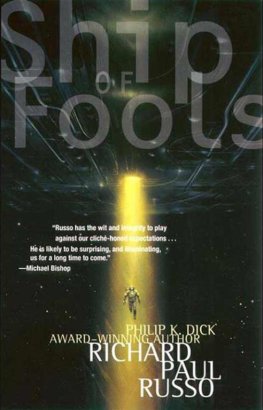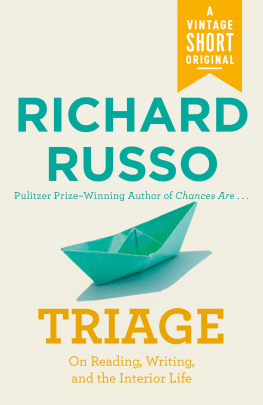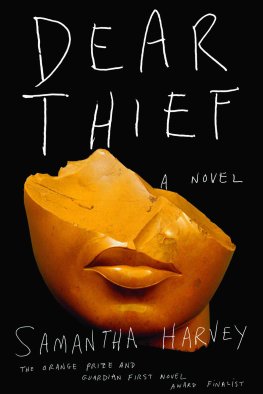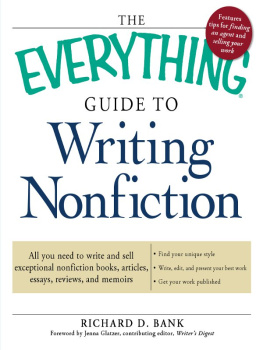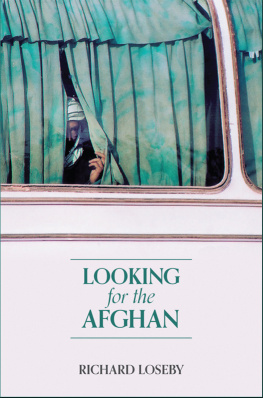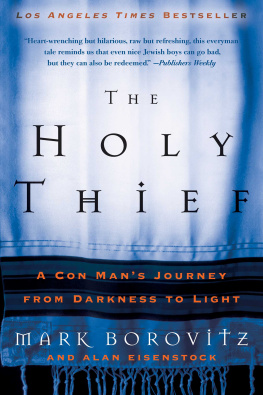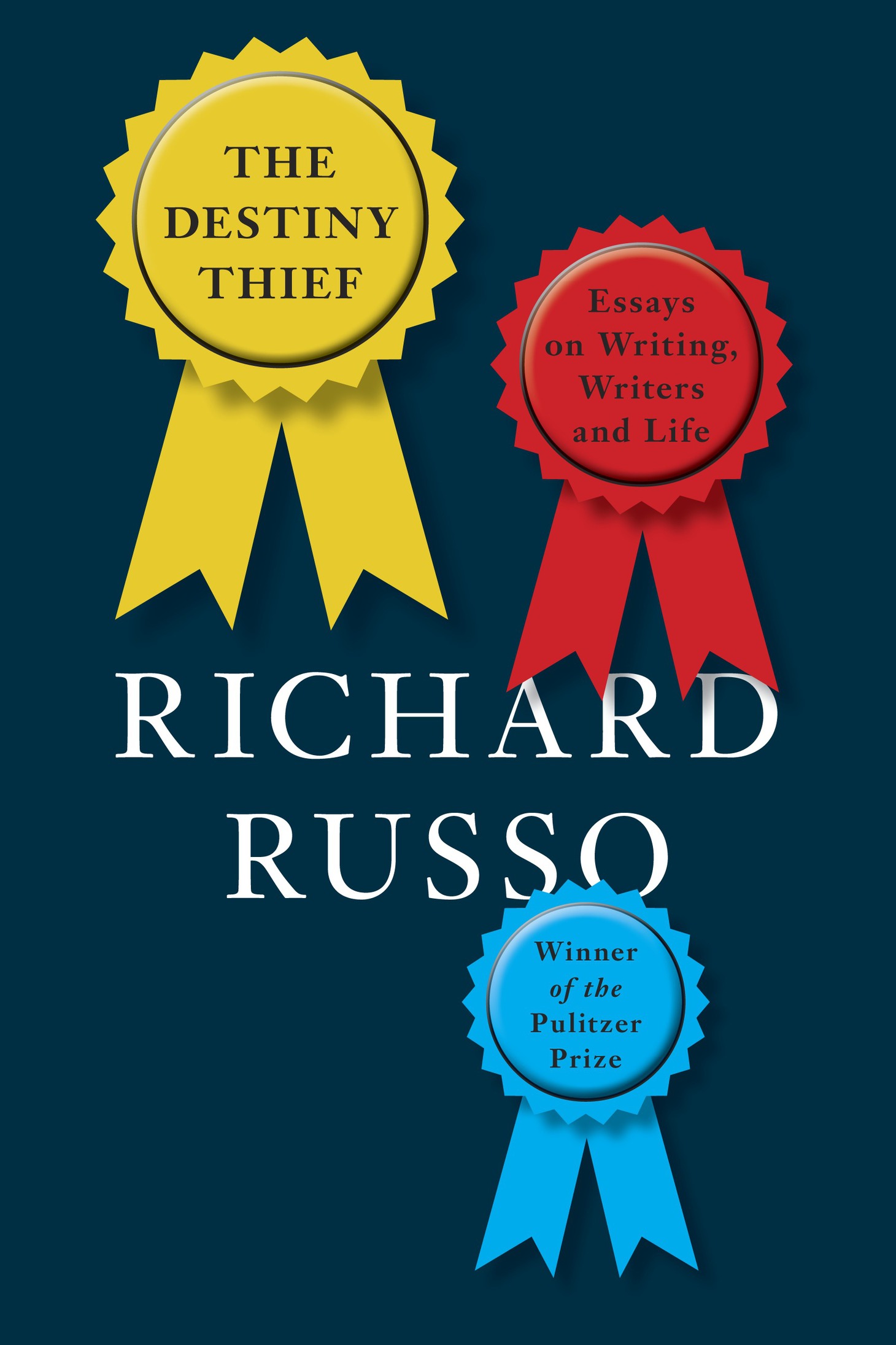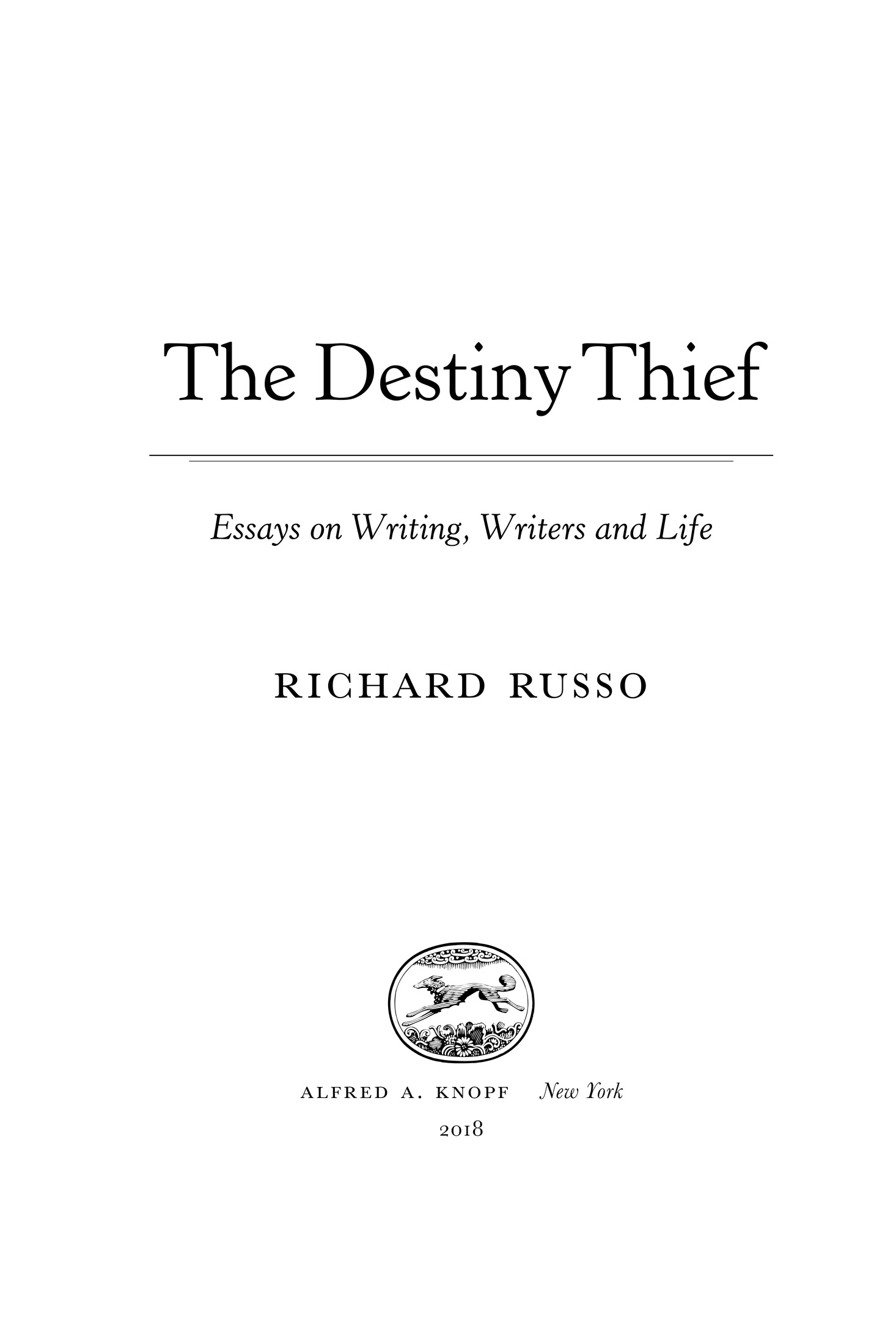ALSO BY RICHARD RUSSO
Mohawk
The Risk Pool
Nobodys Fool
Straight Man
Empire Falls
The Whores Child
Bridge of Sighs
That Old Cape Magic
Interventions
Elsewhere
Everybodys Fool
Trajectory
THIS IS A BORZOI BOOK PUBLISHED BY ALFRED A. KNOPF
Copyright 2018 by Richard Russo
All rights reserved. Published in the United States by Alfred A. Knopf, a division of Penguin Random House LLC, New York, and distributed in Canada by Random House of Canada, a division of Penguin Random House Canada Limited, Toronto.
www.aaknopf.com
Knopf, Borzoi Books, and the colophon are registered trademarks of Penguin Random House LLC.
Grateful acknowledgment is made to Bruce Springsteen for permission to reprint an excerpt of Land of Hope and Dreams by Bruce Springsteen, copyright 2000 by Bruce Springsteen (GMR). International copyright secured. All rights reserved. Reprinted by permission.
Several essays first appeared in the following publications:
Getting Good first appeared in the Sewanee Review (fall 2017). The Gravestone and the Commode first appeared in the Sewanee Review (summer 2017). Imagining Jenny first appeared as the afterword to Shes Not There: A Life in Two Genders by Jennifer Finney Boylan (Broadway Books, 2003). Mark Twains Nonfiction first appeared as the introduction to Mark Twain Collected Nonfiction: Volume (Everymans Library, 2016). The Pickwick Papers first appeared as the introduction to The Pickwick Papers by Charles Dickens (Modern Library, 2003).
Library of Congress Cataloging-in-Publication Data
Names: Russo, Richard, 1949 author.
Title: The destiny thief : essays on writing, writers, and life / by Richard Russo.
Description: First edition. | New York : Alfred A. Knopf, 2018.
Identifiers: LCCN 2017024819 (print) | LCCN 2017035766 (ebook) | ISBN 9781524733520 (ebook) | ISBN 9781524733513 (hardcover)
Classification: LCC PS 3568. U 812 (ebook) | LCC PS 3568. U 812 A 6 2018 (print) | DDC 814/.54dc23
LC record available at https://lccn.loc.gov/2017024819
Ebook ISBN9781524733520
Cover design by Kelly Blair
v5.2
ep
Contents
The Destiny Thief
As a writer, you arent anybody until you become somebody.
James Salter
I am the same man I was when I was a struggling nobodystill a writer trying to find his way through a maze. Should I be anything else?
Raymond Chandler
Some time ago I had a lengthy telephone conversation with a man Ill call David. Id known him nearly forty years earlier at the University of Arizona, where we shared a fiction workshop taught by the writer Robert C. S. Downs, who encouraged both of us, but David especially. At the time I was finishing up my PhD in American literature, so when I asked Downs about taking a workshop, I assumed hed put me in one at the graduate level, but he didnt. My prose, he explained, was full of jargon and intellectual pretension. Most writers had about a thousand pages of shitty prose in them, he went on, and these have to be expelled before they can hope to write seriously. In your case, he added, make it two thousand. And so, pushing thirty, I swallowed my pride and enrolled in a workshop full of twenty-year-olds, many of whom were better writers than I was.
David was working on a novel about a rock-and-roll band, and having once played in a band myself, I was envious of both his subject matter and his bold talent and even more jealous of the fact that at age twenty hed already figured out what he wanted to do with his life, whereas Id wasted the better part of a decade pursuing an advanced degree I no longer really wanted. What I didnt know about David was what a rough time he was having outside the classroom. His mother, whom hed dearly loved, had recently died of cancer, and his father was an emotional tyrant. David himself had very little money and was drinking heavily. Indeed, the fiction workshophis dream of becoming a novelist one daywas just about all that was holding him together. Then, near the end of the semester, he got in trouble, courtesy of his poet girlfriend. Shed been assigned six poems, and the day before they were due she hadnt written a single line. When she told David she was thinking about dropping the course, he said, Nonsense. Well write them now. How hard can it be? So they sat down and did just that, the girlfriend writing three poems, David the other three.
They both thought the results were pretty good, but the girlfriend was unprepared for the praise lavished on the poems, in particular the one David had written about his mother. After class, she made the mistake of confiding to a classmate that all of the poems had been written the night before, half of them by her boyfriend. When her friend reported the infraction, both she and David were hauled before Downs, the director of creative writing, to explain themselves. The girlfriend arrived at the meeting determined to defend the work as her own. David, they agreed beforehand, would admit only to offering advice. But this wasnt Downss first experience with academic dishonesty, and instead of asking if shed written the poems in question, he quoted the best line from the whole batch of poems and asked if shed written it; she immediately broke down.
Since shed come clean and it was her first offense, Downs said hed recommend a D in the course but no mark on her record. He then turned to his star fiction writer and said, Good poems. David sighed, accepting the compliment, proud to have written the line that his mentor so admired, but fearful of what came next. The dishonesty charge was the least of it, he confessed. He was out of money and about to be evicted from the shithole where he was living. Hed dropped the rest of his courses earlier in the term, and though he hated the idea, there was nothing to do but return home in defeat. He hadnt intended to tell Downs any of this, but there he was, spilling his guts about how much the workshop meant to him and how much he hated the idea of not completing it. When he asked what his grade would be, Downs said hed be getting the A hed earned and added, perhaps to bolster his spirits, that it would likely be the only one in the class. Apparently we were not a stellar group. What about Rick? David asked. After all, I was a grad student. Downs shrugged. Rick doesnt want to be a writer. He wants to be a teacher. (He was wrong about that, but he couldnt have known. After getting the PhD, I did plan on applying for teaching positions.)
Now fast-forward to 2002. For both David and me a lot has happened. Hes eventually finished his undergraduate degree, then gone on to graduate school for an MFA in poetry, not fiction. He has married, had kids, is teaching college to support his writing habit and has become middle-aged. Hes continued to struggle periodically with alcohol but remained functional, enjoyed success as a poet and become something of a legend among his students. Along the way hes finished that rock-and-roll novel, but frustrated by his inability to find an agent, finally published it himself. Maybe his life isnt the one he imagined back in Tucson, but for the most part hes been pretty happy.
Until one day he picks up the University of Arizona alumni magazine and discovers that a student from his undergraduate workshop (who did indeed get a B) has been awarded the Pulitzer Prize for fiction. According to the article, the prizewinner taught for a while before quitting to write full-time. David feels something inside him come untetheredand really, who could blame him? Somehow he and I have swapped destinies. He is the teacher, I the writer. He wants someone to explain the cosmic mechanism by which such a cruel joke could be perpetrated. In fact, hed like


